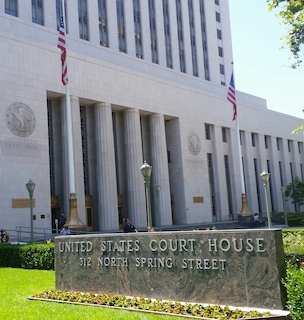If one has been to any large city recently, it is impossible not to see e-scooters available through Lime, Lyft and Bird, as well as Metro Bike Share bicycles available to rent.
If one is an active drug dealer or someone who sells stolen property – and choses to use one of these convenient forms of transportation in furtherance of one’s crimes – should one be worried about the GPS data recorders the companies use on these bikes and scooters to keep track of their locations? Could the police download such information as evidence of one’s criminal activities?
The answer appears to be yes, although the following summary of a recent U.S. Court of Appeals decision from the Ninth Circuit did not directly address this issue.
The Gist of this Article: The government’s collection of location data of e-scooters such as those rented by Bird, Lime and Lyft, which can be matched to a person’s identity by correlation with one’s credit card payment history, is not a Fourth Amendment violation.
The factual background for this case is important to understand. In 2017, companies such as Bird, Lime and Lyft began offering e—scooters for rent to the public in Los Angeles. The e-scooters are dockless, meaning they can be left anywhere after use and picked up by the next rider. They are also internet-connected and are rented through the companies’ smartphone applications, which charge riders based on the distance and duration of the trip taken.
In 2018, faced with cluttered sidewalks and street access issues caused by the invasion of these scooters, the City of Los Angeles adopted a permitting program and required e-scooter companies, through Los Angeles Ordinance 185,785, to disclose real-time location data for every device.
Justin Sanchez used e-scooters to travel from his home to work, visit friends, frequent local businesses and access places of leisure. He filed a federal lawsuit against the Los Angeles Department of Transportation and the City of Los Angeles, alleging that their collection of location data violates the Fourth Amendment to the United States Constitution; Article 1, Section 13 of the California Constitution; and the California Electronic Communications Privacy Act (California Penal Code § 1546, et seq.). In fact, the data provides location data with “Orwellian” precision, within 1.11 centimeters of the scooter’s exact location.
 U.S. District Court
U.S. District Court
The complaint acknowledged that the location collection data did not collect any information directly identifying the rider of any particular scooter, but Sanchez alleged government actors could subsequently “match users’ trajectories in anonymized data from one dataset, with deanonymized date in another,” and research indicates programmers “could identify 50% of people from only two randomly chosen data points in a dataset that contained only time and location data.” The City of Los Angeles could therefore “easily” use MDS information with other data to identify trips to sensitive locations to track a rider’s whereabouts.
The U.S. District Court judge assigned to the case, Dolly Gee (who our office has appeared before several times and knows her from before she became a judge) granted the Los Angeles Department of Transportation’s motion to dismiss without leave to amend. She found that the Los Angeles Department of Transportation (LADOT) program was not a search under the Fourth Amendment because Sanchez had no reasonable expectation of privacy over anonymous MDS location data and that, alternatively, even if the MDS data were a search, it is a reasonable one and thus constitutional, citing to Sanchez v. City of San Diego (9th Cir., 2006) 464 F. 3d 916, 928-929.
Mr. Sanchez appealed this ruling to the U.S. Court of Appeals for the Ninth Circuit in Pasadena.
In opposing the appeal, the LADOT argued that Sanchez lacked Article III standing because he really was just arguing about a hypothetical future invasion of privacy that may never occur. See In re Apple iPhone Antitrust Litig. (9th Cir. 2017) 846 F. 3d 313, 319. Sanchez had not suffered any injury in fact that was concrete, particularized and actual or that his injury would likely be redressed by judicial relief. The Ninth Circuit, surprisingly, rejected this argument.
However, the Ninth Circuit affirmed Judge Gee under the third-party doctrine. Sanchez, the appeals court found, had no legitimate expectation of privacy with information he voluntarily turned over to third parties such as Lime, Bird or Lyft when he rented the e-scooters and the government is typically allowed to obtain that information without triggering Fourth Amendment protections.
Moreover, we would add, he was traveling in public places, visible to all, so he had no subjective or objective expectation of privacy in such whereabouts information.
We provide this summary to our readers as a cautionary tale that, like cell phone location tracking applications, one’s location is often easy for the government to determine, making alibi defenses more susceptible to impeachment.
The citation for the United States Court of Appeals for the Ninth Circuit ruling discussed above is Justin Sanchez v. Los Angeles Department of Transportation, et al. (9th Cir., 2022) 35 F. 4th 721.
For more information about a reasonable expectation of privacy when a GPS device is used by police, please click on the following articles:
 U.S. District Court
U.S. District Court